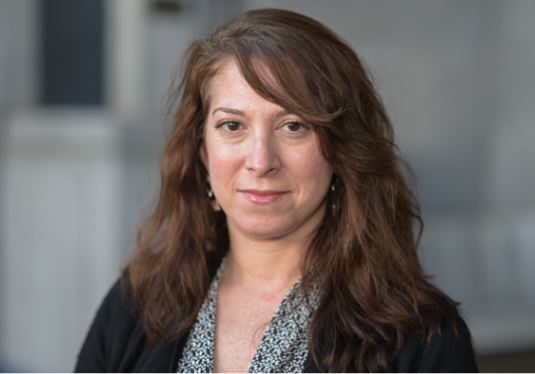Dr. Heather A. Smith, an obstetrician and gynecologist at Women & Infants Hospital, was named president-elect of the American Medical Association Foundation board of directors in June. Smith’s membership in the AMA dates back to 2002. Since then, she has held numerous leadership positions in the organization. Among them is serving as a delegate since 2008 to the AMA House of Delegates, where she most recently represented the American College of Obstetricians and Gynecologists.
PBN: What will your main responsibilities be as president of the American Medical Association Foundation board of directors?
SMITH: The AMA Foundation is the nonprofit, philanthropic arm of the American Medical Association. We like to consider ourselves the heart of the organization. Our mission is to bring together physicians and communities to improve our nation’s health.
I am honored and proud to be elected to president-elect for the AMA Foundation and to be provided the opportunity to continue serving our patients and communities across the nation. As a former recipient of a foundation scholarship, I know personally how impactful our programs are and how they can open the doors to a medical career committed to health equity and underrepresented populations.
As president next year, my primary role is to ensure the sustainability and relevance of programs and fundraising activities aimed at addressing health disparities and promoting health equity in our nation. One of my goals is to even further diversify and strengthen our community partnerships, including here in Rhode Island. The foundation’s support of community clinics, medical education scholarships for underrepresented-in-medicine students and health equity initiatives at the community level is a mission that is globally local! I look forward to working with my local colleagues and neighbors on these programs and events.
PBN: Are there any issues within health care that are particularly important to you that you hope to be able to address in your new position?
SMITH: As an OBGYN, disparities in women’s health outcomes, especially among Black and LatinX women, are of great concern to me. In the U.S., high blood pressure continues to disproportionately affect communities of color, with the prevalence of high blood pressure in Black women nearly 40% higher than white women. And significant health disparities occur in pregnancy as well. Black women are three to four times more likely than white women to die related to pregnancy, with some areas of the country showing rates as high as 12 times more likely. This is shocking and unacceptable, but is still the reality for too many of my patients.
Through the foundation, we have been able to leverage resources and national connections to support local communities in their actions to identify and address disparities. Our Community Health Programs support health providers and other entities to improve the management of chronic disease such as diabetes and hypertension among underserved populations. We create opportunities to bring corporate leaders, physician leaders and medical educators together to dialog and innovate ideas to advance health. Additionally, we recognize and support medical students through scholarships, including those underrepresented in medicine and dedicated to serving health equity, to support developing a diverse workforce who better represents and serves our patient population.
Wanting to further tackle these disparities among Black women, the foundation is also working closely with ESSENCE in a partnership including the AMA, National Medical Association, Association of Black Cardiologists, American Heart Association and Minority Health Institute. We have launched a campaign to support Black women in improving their heart health. This national campaign, “Release the Pressure,” supports women [being] part of a movement for healthy blood pressure through providing resources to identify and track their blood pressure numbers, as well as develop a wellness plan with existing personal support systems of family and friends to manage their heart health virtually.
PBN: You’ve been involved with the American Medical Association for nearly 20 years, and are also active in Rhode Island’s, Massachusetts’ and Connecticut’s medical societies. What motivates you to pursue positions of leadership within health care?
SMITH: Prior to medical school, I worked in community health and education. I personally witnessed the disparities in access to education, health insurance, food security, transportation and other important systems which impact a community’s strength and well-being. I saw then that local and federal policies strongly influence community resources and individuals’ health.
Now that I am practicing medicine, those past experiences have also informed me about how truly complicated the environment is in which patients make decisions. Medicine might be prescribed within the clinic walls, but health is attained in the community. Too often, the discussions I have and recommendations I make may not be able to be realized due to the competing factors in a patient’s life, many of which they have no control.
With this perspective, I have stayed involved in organized medicine, working with several different specialty and state organizations, to be a strong advocate for my patients and my profession. I have been supported in my career by the foundation to be able to be this advocate, and now I serve on the AMA Foundation board of directors to pay it forward. As a member of the foundation leadership, I have the opportunity to support a diverse health care workforce, develop training for leadership skills among young physicians and increase resources for clinics that provide expanded access to health for their communities’ members.
PBN: Have you been able to continue to see patients throughout the COVID-19 health crisis?
SMITH: Working in the Women & Infants Hospital labor floor and emergency room, I have continued to be present on the front line serving our patients and their families. It has been a privilege to be able to care for our patients during all aspects of their lives and health, even as COVID has impacted so many parts of our daily routines.
Admittedly, much has changed: I am now wearing masks, gowns and face shield in situations that were once considered routine patient care; many patients have to go through surgery or get admitted without being allowed a visitor to stay with them; and some outpatient services like pap smears and physicals and some surgeries have been delayed or even canceled.
And while I am sure that it is scary to be in pain or to go through a life-changing event during such an unpredictable time, knowing that I can be there to support them and care for them is something I am so very proud to do.
PBN: Has the pandemic resulted in any lessons for health care leaders that you predict will result in changes to the way undeserved women are able to access medical care?
SMITH: I think the most important outcome so far is that there is now mainstream recognition of disparities in access, treatment and outcomes. More people are joining our serious conversation about the need to address the lack of health equity. I am hopeful that this talk will translate into real action across the nation and in each city or town.
Additionally, the pandemic has highlighted the integral relationship of the community’s health with the surrounding built environment and community resources. We cannot have individual health without a robust public health infrastructure.
And finally, due to strict restrictions to reduce unnecessary in-person exposures, the medical field has rapidly diversified the way in which our patients can obtain health care and advice, including telemedicine by internet and phone. Although in some instances this can further limit access to care in areas with limited internet services, the changes in regulations quickly adopted by public and private health insurances allowed for the historical opportunity to expand the manner in which patients can interact safely with their physicians.
Elizabeth Graham is a PBN contributing writer.













